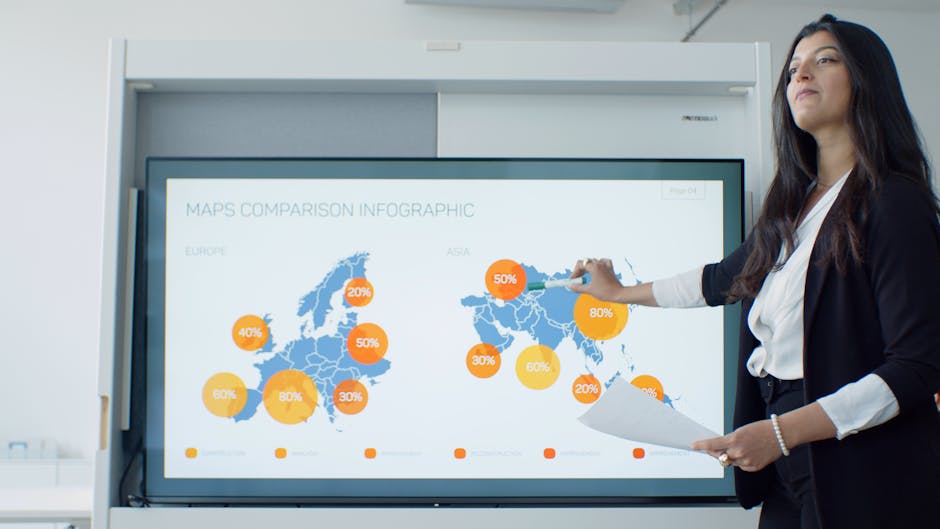21-Year-Old Digital Marketing Prodigy Reshapes Small Business Landscape in 2025
Self-taught digital marketing expert Malik Tayyab is making significant waves in the 2025 business landscape, leveraging cutting-edge strategies to propel small and medium-sized enterprises (SMEs) to unprecedented growth. His success underscores a broader trend of young entrepreneurs disrupting traditional marketing models and highlights the increasing importance of digital fluency in the modern economy. This rapid growth, however, also raises questions about the sustainability of such rapid expansion and the potential for market saturation.
Tayyab’s Approach: Data-Driven Strategies for SMEs
Tayyab’s methods differ significantly from traditional marketing agencies. He focuses heavily on data-driven strategies, utilizing sophisticated analytics tools to understand consumer behaviour and optimize campaigns in real time. This allows for a level of precision and efficiency previously unavailable to many SMEs, leading to higher return on investment (ROI) and increased profitability. His success highlights the growing demand for specialized, results-oriented digital marketing services.
AI-Powered Tools and Personalized Campaigns
A key element of Tayyab’s success lies in his adept use of artificial intelligence (AI) powered tools. These technologies allow for the automation of repetitive tasks, enabling him to manage multiple client campaigns simultaneously while maintaining a high level of personalized attention. This personalized approach is crucial in today’s competitive market, fostering strong customer relationships and brand loyalty.
The Broader Impact on the SME Sector in 2025
Tayyab’s success is not an isolated incident. It reflects a larger trend within the SME sector in 2025, where businesses are increasingly reliant on digital marketing for growth. This shift is driven by factors like the increasing accessibility of digital tools and the growing importance of online presence for consumer engagement. The rising popularity of social media marketing and e-commerce platforms has further fueled this trend.
Challenges and Opportunities
However, this rapid digital transformation also presents challenges. Many smaller businesses lack the resources and expertise to implement effective digital strategies. This creates a significant digital divide, leaving some businesses behind in the rapidly evolving online landscape. This disparity is further exacerbated by the ever-increasing complexity of digital marketing tools and techniques.
The Future of Digital Marketing and the Role of Young Entrepreneurs
The trajectory of digital marketing in 2025 points towards an increasingly data-driven, AI-powered, and personalized approach. This necessitates a skilled workforce capable of leveraging these advanced technologies. Young entrepreneurs like Tayyab represent a new generation of marketing professionals equipped with the skills and innovation needed to navigate this complex landscape. Their emergence signals a shift in the power dynamics of the marketing industry.
Key Trends in 2025 Digital Marketing:
- AI-driven personalization: Tailoring marketing messages to individual consumer preferences.
- Increased use of short-form video content: Platforms like TikTok and Instagram Reels are dominating engagement.
- Focus on measurable ROI: Businesses are demanding quantifiable results from their marketing spend.
- The rise of influencer marketing: Collaborations with online personalities are becoming increasingly prevalent.
- Growing importance of data privacy and ethical considerations: Consumers are becoming more aware of data usage.
Sustainability and Market Saturation Concerns
While Tayyab’s success story is inspiring, it also raises concerns about the long-term sustainability of such rapid growth in the digital marketing sector. Market saturation could lead to increased competition and decreased profitability for individual marketers. Furthermore, the reliance on sophisticated AI tools could potentially displace human jobs in the long term. This is a trend worth watching and analyzing, especially considering the rapid technological advancements taking place across various fields.
Addressing the Challenges
To mitigate these challenges, a multi-pronged approach is needed. Government initiatives to support SME digital literacy and training programs could bridge the digital divide. Additionally, industry associations could play a vital role in fostering ethical practices and promoting sustainable growth within the sector. Collaboration between established agencies and young entrepreneurs could also lead to a more balanced and robust ecosystem.
Conclusion: A New Era of Digital Marketing
Malik Tayyab’s success embodies the dynamism and potential of the 2025 digital marketing landscape. His story serves as a testament to the power of innovation, data-driven strategies, and the entrepreneurial spirit of young professionals. However, the rapid growth in this sector also presents challenges that necessitate proactive measures to ensure sustainable growth, ethical practices, and equitable access to opportunities for all businesses. The future of digital marketing is undoubtedly bright, but navigating its complexities requires a nuanced and collaborative approach.

